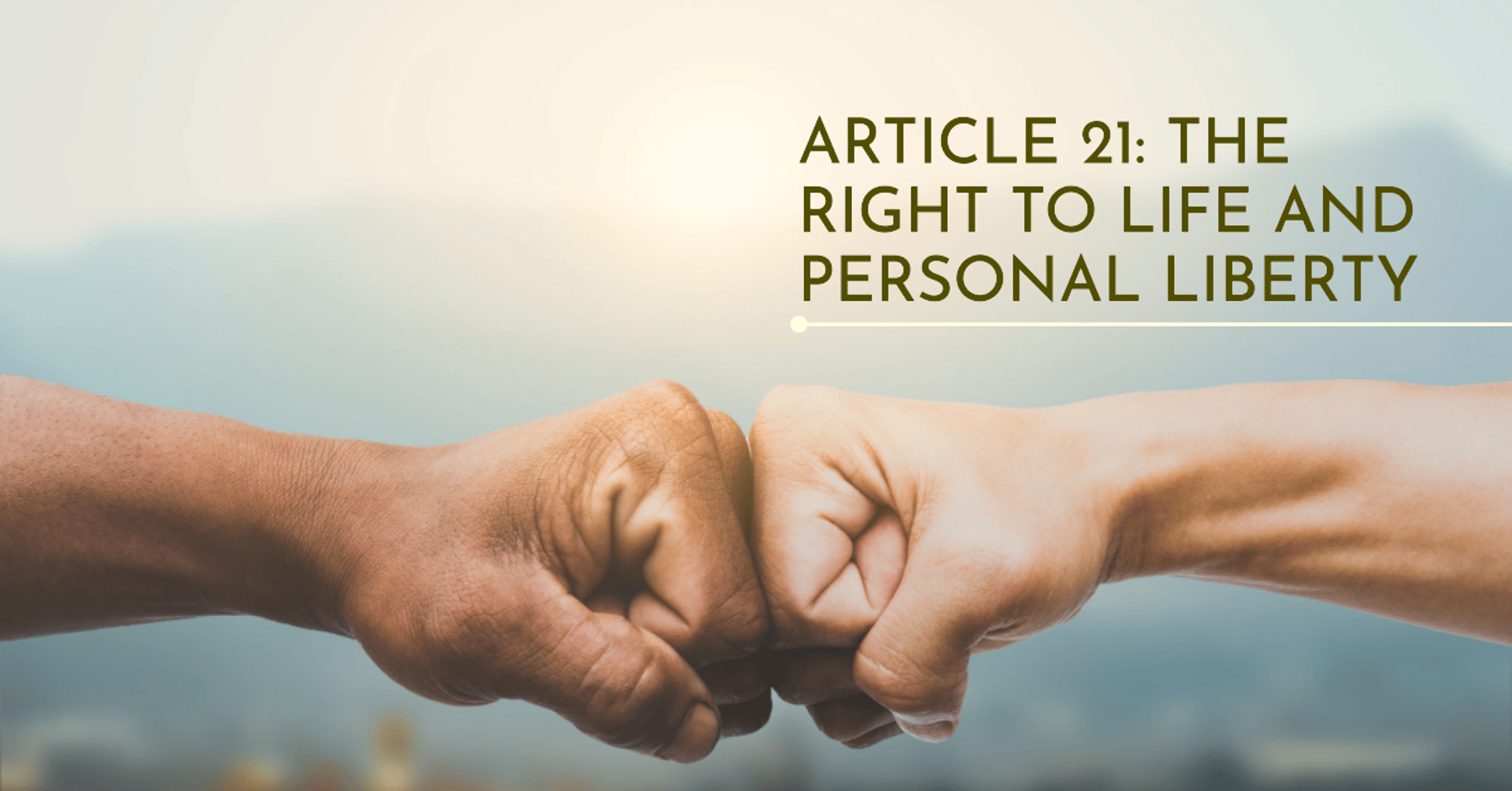
ARTICLE 21 OF THE CONSTITUTION OF INDIA
The Constitution of India states Article 21 as “Protection of Life and Personal Liberty: No person shall be deprived of his life and personal liberty except according to procedure established by law”
3/3/20243 min read


Article 21 of the Indian Constitution assures Right to Life and Personal Liberty. It is one of the vastest interpreted right and most important right that the Constitution guarantees. The right is available to every person, citizen and foreigners also. The Supreme Court of India has described Article 21 as the heart of the fundamental rights.
Right to life does not only mean right to survive. It also entails being able to live a life of dignity and meaning. The right has been provided against the state only. The remedy available for any private individual encroaching on these rights would come under Article 226 or general laws.
The Court has briefly given a list of rights that Article 21 would cover. These rights are based on the landmark judgments that court decided in cases where Article 21 of a citizen was violated by any government authority. The list is as follows:
1. Right to privacy
2. Right to go abroad
3. Right to shelter
4. Right against solitary confinement
5. Right to social justice and economic empowerment
6. Right against handcuffing
7. Right against custodial death
8. Right against delayed execution
9. Right against delayed public hanging
10. Protection of culture heritage
11. Right to pollution-free water and air
12. Right of every child for a full development
13. Right to health and medical aid
14. Right to education
15. Protection of under-trials
It was in the following cases from which the interpretation of Article 21 has widen
· AK GOPALAN CASE (1950): It was in this case that the Supreme Court held that the expression “procedure established by law”, the constitution has embodies the concept of personal liberty rather than the American “due process”. After this case the scope of Article 21 had widen.
· Maneka Gandhi v/s Union of India (1978): It was in this case that the Supreme Court the scope of Article 21 is widen enough and thus the rights laid down in Article 19 should also be complied with. Thus, any procedure under the law for the deprivation of life and liberty of a person must not be unfair, unreasonable or arbitrary.
· Francis Coralie Mullin v/s Union Territory of Delhi (1981): In this case also it was held that any procedure for the deprivation of life and liberty of a person must be reasonable, fair and just and not arbitrary, whimsical or fanciful.
· Olga Tellis v/s Bombay Municipal Corporation (1985): It was held that any procedure that would deprive a person’s fundamental right should conform to the norms of fair play and justice.
· Unni Krishnan v/s State of Andhara Pradesh (1993): Expanded interpretation of Right to Life was upheld by the Supreme Court in this case.
Article 21’s interpretation has been so wide that Right to Life has also included Right to Suicide. There has been many debates on whether this should be considered as a part of Article 21. In the Indian Penal Code under section 309, attempt to commit suicide is punishable with imprisonment and fine. But as per the Mental Health Care Act, 2017, “ Notwithstanding anything contained in section 309 of the Indian Penal Code, any person who attempts to commit suicide shall be presumed, unless proved otherwise, to have severe stress and shall be tried and punished under the said Code.” The law basically decriminalizes suicide in India.
There have been many arguments in favor of decriminalizing suicide it is said that a person who attempts to commit suicide is someone who is in need of medical care and not jail warden’s service.
But the arguments that are against decriminalizing suicide state that decriminalizing suicide ultimately decriminalizes abetment to commit suicide which means that if someone is responsible for the suicide of the victim, he will be set free. Thus, if the intention is to decriminalize the law on attempt to suicide it should be exclusive of abetment to suicide.
